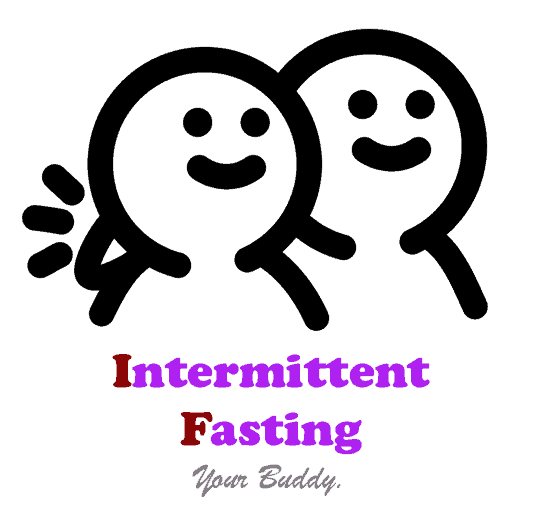Intermittent fasting has a lot of proven benefits: weight loss, blood sugar management, longevity, and more. And for many it is an easy diet: all you need to do is skip 1-2 meals per day and eat normally for the rest of the day. This process of skipping meals has many wondering: can intermittent fasting cause ulcer?
No, intermittent fasting cannot cause an ulcer, because ulcers are typically caused by a bacteria called H. pylori. It can also be caused by certain medications such as ibuprofen or aspirin. Certain harmful habits, like smoking or excessive drinking, can increase your chances of getting an ulcer. Your eating habits, however, will not give you one. That being said, fasting with an ulcer might not be the easiest or the best thing for your health. Like most things, it all depends on each person’s case.
Let’s dive deeper into this topic and see how intermittent fasting may influence your ulcer, your chances of getting one, and more.
Can intermittent fasting cause ulcer?
There’s a myth that says staying hungry for extended periods of time give you an ulcer. But in the past 10-15 years, research has proved otherwise. Your chances of getting an ulcer do not increase by fasting. That’s because most ulcers are caused by a common bacteria called Helicobacter pylori.
Overuse of medication, especially NSAIDs can also cause an ulcer. Habits like smoking or drinking, can increase the risk or make things worse. In other words, fasting won’t increase your risk, but if you spend your fasting window smoking to “fool” your hunger cues, then you might end up with an ulcer.
Does being hungry have any effect? 
As we previously saw, hunger did not affect your risk of getting an ulcer. But your behavior during your fasting window can have a negative impact. Smoking is known to increase the risk of getting an ulcer, but so are NSAIDs.
So if you find you need to take ibuprofen or other anti-inflammatories daily while you’re fasting, you may need to rethink your diet. You can either modify your fasting schedule to take your medication during your eating window, or you may simply have to accept at the moment, while you’re on medication, fasting might not be the right thing for you.
If you already have an ulcer, fasting is a very controversial topic. It could worsen your symptoms, or it could make them better. It is not a diet usually recommended by doctors, so if you do decide to try it against their advice, be very careful about how you feel.
Is it ok to break a fast if you have an ulcer?
It is always ok to break a fast for health reasons. Fasting should never have a negative impact on your health. So if you already have an ulcer and you realize fasting is causing you stomach pain or digestive issues later on in the day while you eat, change your diet.
Is it normal to feel discomfort when starting intermittent fasting?
A mild discomfort, especially when you first start fasting is normal. Your body needs a bit of time to adjust to the new eating schedule, especially if you were someone who was eating regularly and never skipping meals. But if the discomfort starts to disrupt your normal activities and turns into real, hard-to-manage pain, you should break your fast immediately.
Should you fast with an ulcer?
There is no right or wrong answer. Many doctors recommend small, frequent meals for patients with ulcers, which goes in complete contradiction with the very definition of intermittent fasting. While many people find this style of eating soothing, some don’t feel any benefits from eating frequent meals. In fact, some people swear by intermittent fasting and claim it has been the solution to all their digestive issues and stomach pain. So what are you supposed to do, how can you figure out what’s best for you?
As with any medical condition, you should start by talking to your doctor. There’s a chance they’ll recommend the classic approach that forbids fasting. But if you’re interested in trying this lifestyle, you need to analyze your condition a bit further. How serious is it? Is it just a mild ulcer, that causes only occasional discomfort, or is it something that impacts the quality of your life? If it’s the latter, you should probably follow your doctor’s advice without any deviation.
With a milder case, your doctor might agree to let you try intermittent fasting, especially if you’ve done it before and felt good with it. Also, if you decide to try the common approach of frequent, small meals and see your symptoms aren’t getting better, or are even getting worse, you may be one of those who will see improvements on an intermittent fasting diet.
Even if fasting does seem to ease your symptoms, remember that what you eat matters more than when you do. Eating a diet filled with whole foods, fruits and vegetables can help reduce symptoms, while heavier, fried foods can worsen them. So even if fasting feels better than frequent eating, don’t make the mistake and eat junk food during your eating window. Fasting is, sadly, not a replacement for healthy meals.
The bottom line
Ulcers are caused by a bacteria called Helicobacter pylori or prolonged use of certain medications such as aspirin or NSAIDs. The idea that not eating for extended periods can cause an ulcer is a myth that has been debunked through extended research over the past decade.
If you already have an ulcer, you’re probably familiar with the common recommendation to eat small and frequent meals which seems to make fasting impossible. This style of eating isn’t beneficial for everyone, and some may in fact feel better on intermittent fasting. If you find frequent meals make you feel worse, give you abdominal pain, nausea, acid reflux, or other symptoms, you may be able to attempt intermittent fasting.
Regardless of the diet you choose, remember what you eat has a bigger impact on your symptoms than when you eat, so make sure to choose whole foods over junk.


1 thought on “Can Intermittent Fasting Cause Ulcer? (Stomach Ulcer)”